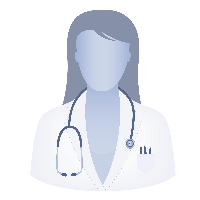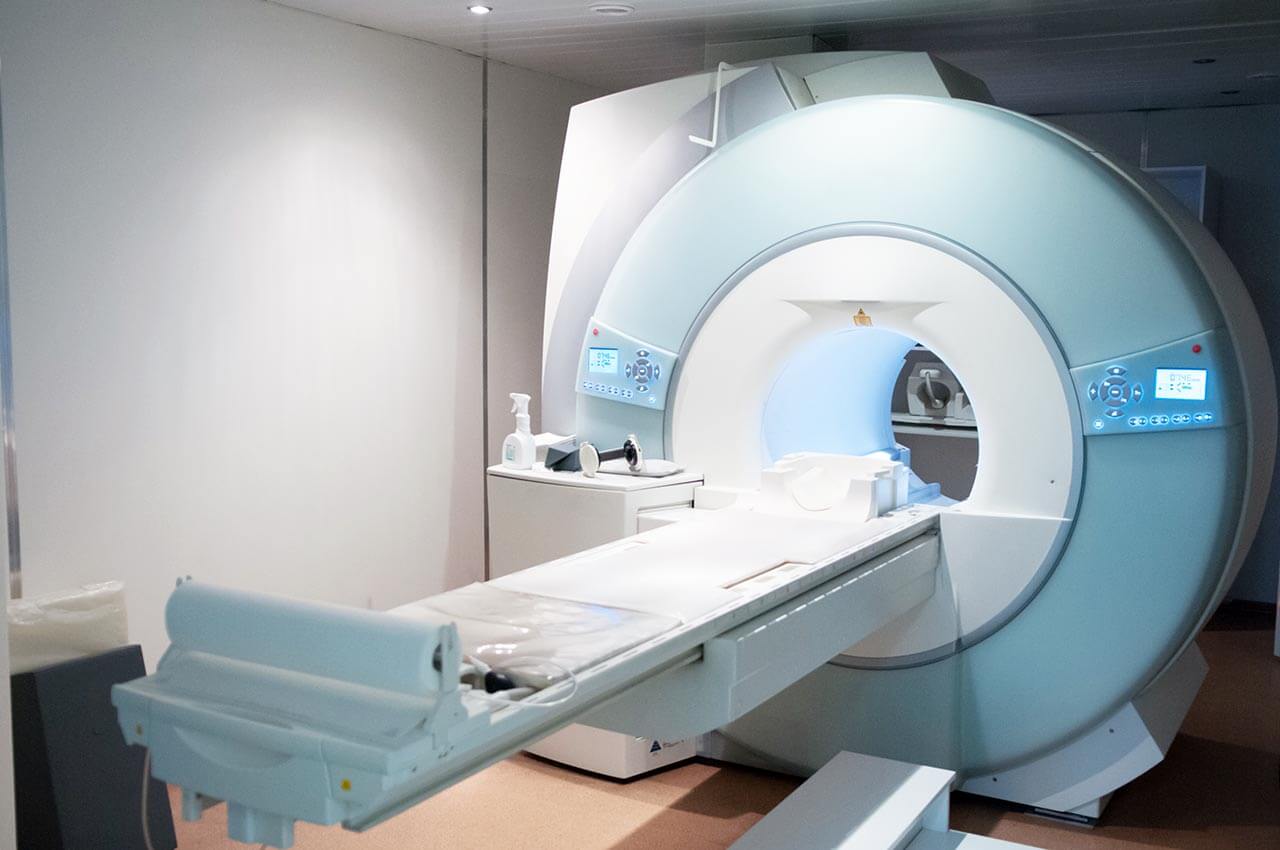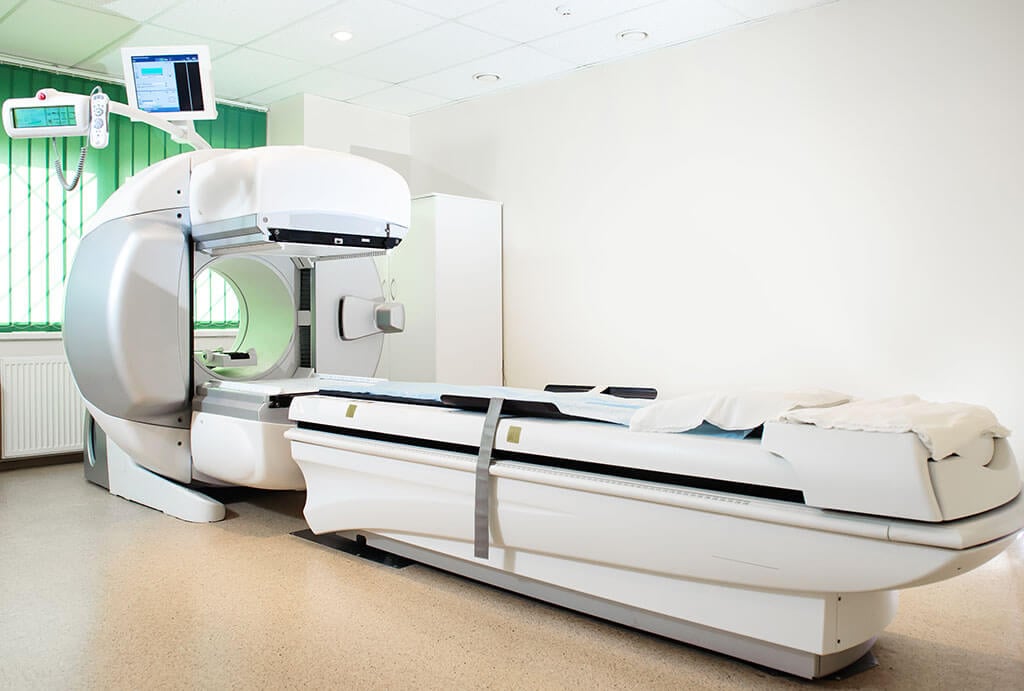
The program includes:
- Initial presentation in the clinic
- clinical history taking
- physical examination
- review of medical records
- laboratory tests:
- complete blood count
- general urine analysis
- differential blood analysis
- biochemical analysis of blood
- TSH-basal, fT3, fT4
- tumor markers
- indicators of inflammation
- indicators of blood coagulation
- chest X-ray
- abdominal ultrasound scan
- CT of the neck, chest and abdomen
- bone marrow biopsy with histological analysis
- 1 course of chemotherapy
- symptomatic treatment
- control examinations
- cost of essential medicines and materials
- nursing services
- full hospital accommodation
- explanation of future recommendations
How program is carried out
During the first visit, the doctor will conduct a clinical examination and go through the results of previous laboratory tests and instrumental examinations. After that, you will undergo an additional examination, including laboratory assessment of liver and kidney function, ultrasound scan. Based on the received results, the doctor will elaborate the chemotherapy regimen. If necessary, related medical specialists will be involved in the elaboration of a treatment regimen (tumor board).
Chemotherapy is carried out as the inpatient procedure, with mandatory admission to the hospital. After the placement of a venous catheter, you will stay in a comfortable ward. An infusion system will be connected to the catheter, through which the required drug or a drug combination will be administered. All drugs are administered by intravenous drip, slowly, so the total duration of the infusion can be up to several hours. All this time, doctors and nurses will monitor your health condition closely.
After the course of chemotherapy, you will stay under medical supervision in the ward for a few more hours. After the completion of the chemotherapy course and control examinations you will receive the medical report with detailed recommendations regarding further treatment. In the future, you will be able to have a distant consultation with your attending physician and schedule the next course of chemotherapy, if necessary.
Required documents
- Medical records
- MRI/CT scan (not older than 3 months)
- Biopsy results (if available)
Service
You may also book:
 BookingHealth Price from:
BookingHealth Price from:
About the department
The Department of Hemostaseology at the DKD HELIOS Clinic Wiesbaden offers the full range of diagnostic and therapeutic services for the patients with congenital and acquired bleeding disorders. The therapy of thrombosis, thrombophilia and hemophilia is of particular interest. The primary method for detecting blood clotting disorders is a hemostasiogram (coagulogram). This blood test is performed in the department's own modern laboratory. If the coagulogram shows the presence of bleeding disorders, the department's doctors begin to identify specific factors underlying the development of the pathology. To normalize hemostasis, the specialists use drugs in the form of pills, injection therapy with anticoagulants, transfusion of fresh frozen plasma and individual coagulation factors. An effective treatment regimen is selected for each patient individually, taking into account the specific causes of bleeding disorders and the severity of the pathology. The Chief Physician of the department is Dr. med. Manuela Krause.
The doctors working in the department often admit patients with hemophilia A and B. Hemophilia A is a congenital coagulopathy caused by the decreased factor VIII activities, while hemophilia B is the decreased factor IX activities. The patients with these pathologies regularly have hematomas, internal bleeding due to trauma or surgery, and hemarthrosis. If untreated, the patient experiences hemorrhages in the joints, brain and other vital organs, which can be fatal. The classical treatment protocol for hemophilia A and B usually consists of replacement therapy with coagulation factor concentrates administered by injection. If the patient has already developed bleeding, he needs a more intensive course of therapy, consisting of the administration of fresh frozen plasma, hemostatics and topical application of a hemostatic sponge. It should be noted that mild hemophilia does not significantly affect the quality and life expectancy of patients.
The department's doctors often have to deal with the treatment of thrombophilia. The disease is the most common type of bleeding disorder and is characterized by a high risk of thrombosis. Thrombophilia is considered one of the main causes of the development of deep vein thrombosis of the lower extremities, heart attack, stroke and other life-threatening pathologies. The diagnostics of thrombophilia begins with a clinical examination and a study of the patient's medical history. During the consultation, the doctor finds out whether the patient has a hereditary predisposition to bleeding disorders, whether he is taking any medications that affect the coagulation process, and other important facts. Based on the information received, the specialist prescribes the required laboratory and instrumental diagnostic tests. Should the diagnosis be confirmed, the attending physician will assess the severity of the pathology and elaborate the optimal treatment regimen. In case of mild forms of thrombophilia, the department's specialists recommend prophylactic therapy aimed at preventing thrombosis. The treatment includes diet correction, changing a sedentary lifestyle to a more active one, drug therapy with anticoagulants, vasodilators, antiplatelet agents and other drugs. If the department's specialists detect life-threatening blood clots in the patient during the diagnostics, interventional treatment will be an option on choice (for example, the destruction of a blood clot using a laser).
The main clinical focuses of the department include:
- Diagnostics and treatment of hemophilia A and B
- Diagnostics and treatment of von Willebrand disease
- Diagnostics and treatment of clotting factor deficiency
- Diagnostics and treatment of thrombocytopenias and thrombocytopathies, including those associated with taking medications
- Diagnostics and treatment of intense and abnormally prolonged menstrual bleeding in women
- Diagnostics and treatment of thrombophilia, prevention of thrombosis
- Diagnostics and treatment of other bleeding disorders
Photo of the doctor: (c) depositphotos
About hospital
The DKD HELIOS Clinic Wiesbaden has long made a name for itself in the international medical arena by introducing an optimal model of medical care, combining the use of the most advanced medical technologies, the experience of highly qualified doctors and impeccable quality of patient care. The medical facility first opened its doors to patients in 1970. The world famous Mayo Clinic Rochester in America served as a model for the design of the medical complex. Since the foundation of the clinic, the main direction of its activities has been comprehensive diagnostics of complex diseases integrated into an interdisciplinary treatment concept. Today, an integral part of clinical practice is also preventive diagnostics aimed at the early detection of pathological changes in the human body. In recent years, the clinic has been actively developing the direction of surgery, in which it has significantly succeeded. The clinic enjoys a reputation as one of the best medical facilities in Europe in the field of endocrine and colorectal surgery, as well as in hernia repair surgery.
The clinic has 24 specialized departments. Each of them offers a team of experienced doctors, whose main value is the patient's health. The work of all doctors of the medical facility is based on a single credo – "Treat not a disease, but a patient". According to this belief, the course of treatment should be as individual as possible, taking into account the patient's physical characteristics, lifestyle, diet, emotional state, etc.
The clinic's bed capacity consists of 138 inpatient beds and 60 beds in a day hospital. Many diagnostic and therapeutic procedures are performed on an outpatient basis. The diagnostic and treatment rooms, like the operating rooms of the clinic, are equipped with state-of-the-art technology to ensure the observance of strict hygiene and safety standards. The advanced medical equipment allows detecting the slightest changes in the functioning of organs and their structure with impeccable accuracy, thanks to which doctors can diagnose complex pathologies at the very early stages. This greatly increases the chances of a successful cure.
The location of the clinic in Wiesbaden, known as one of the oldest thermal spas in Europe, is another pleasant advantage for the patients. Arriving at the clinic for a preventive diagnostic examination, one can improve his health in the healing thermal springs, as well as enjoy the sightseeing of historical monuments. The medical center is located in the immediate vicinity of the English style Spa Park founded in the distant 1852, so in the free time from medical procedures one can take a pleasant walk in the beautiful park.
Photo: (с) depositphotos
Accommodation in hospital
Patients rooms
The patients of the DKD HELIOS Clinic Wiesbaden live in comfortable single and double rooms. Each patient room has an ensuite bathroom with shower and toilet. The standard patient room furnishings include an automatically adjustable bed, a bedside table, a table and chairs, a TV and a telephone.
The clinic also offers enhanced comfort rooms with spacious bathrooms, which additionally include a large mirror, hairdryer, changeable towels and toiletries. These patient rooms also have a safe for storing valuables, a free minibar with soft drinks, a flat-screen TV with satellite channels and free Wi-Fi.
Meals and Menus
The patients of the clinic are offered tasty and balanced three meals a day: breakfast, lunch and dinner. If for some reason you do not eat all the foods, you will be offered an individual menu. Please inform the medical staff about your dietary preferences prior to treatment.
The clinic also has a cozy cafe where one can taste delicious snacks, salads, main courses and desserts. One can also enjoy aromatic coffee, delicious tea and soft drinks in the cafe.
Further details
Standard rooms include:
Religion
The religious services are available upon request.
Accompanying person
During the inpatient program, the accompanying person can live with the patient in a patient room or a hotel of his choice. Our managers will help you choose the most suitable option.
Hotel
During the outpatient program, the patient can stay at the hotel of his choice. Our managers will help you choose the most suitable option.





